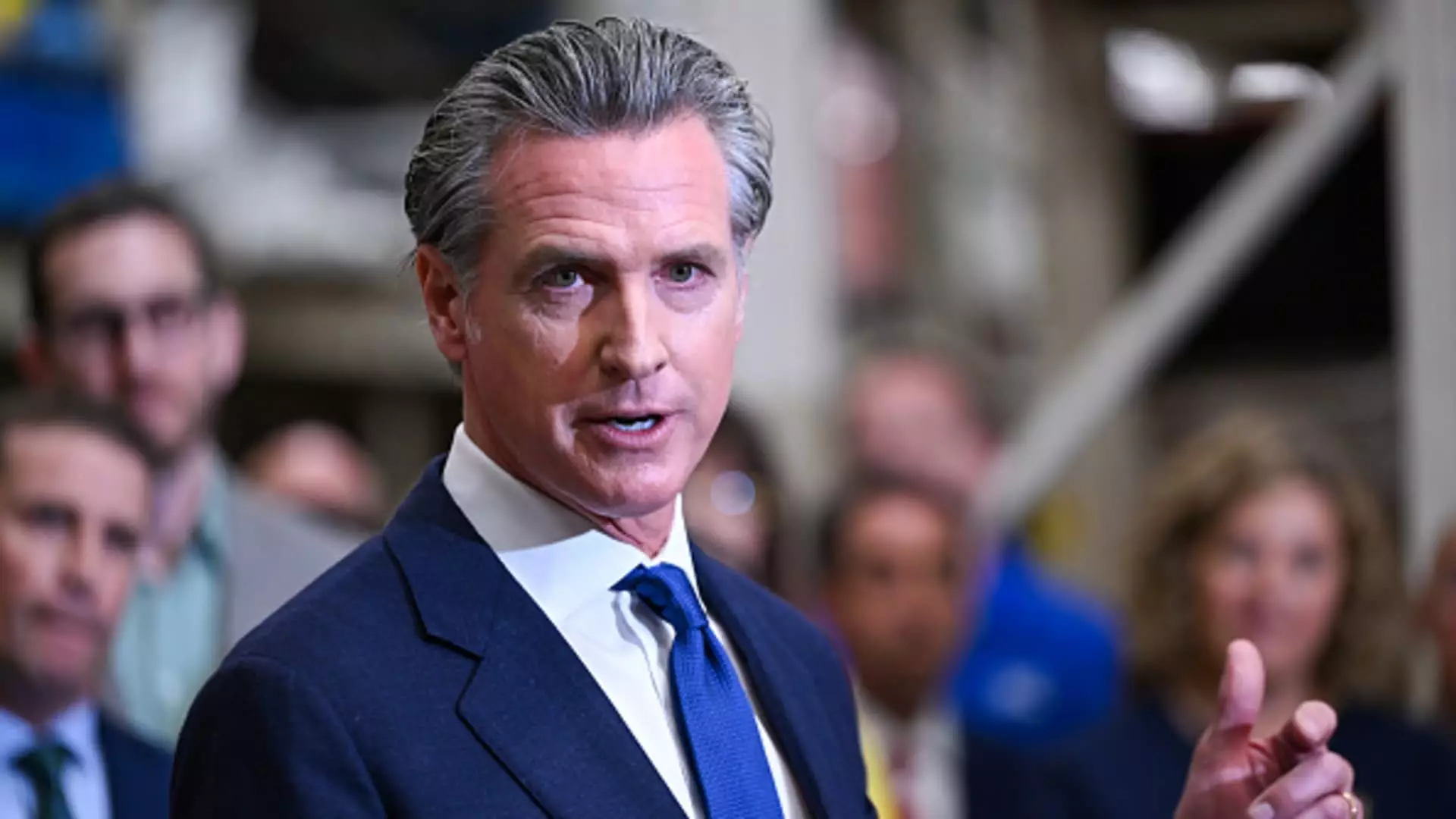In the wake of the recent electoral outcomes and the anticipated policies from the incoming Trump administration, California Governor Gavin Newsom has called for a special legislative session aimed at fortifying the state against what he perceives as potential federal overreach. This proactive maneuver highlights the growing tension between state and federal governance, particularly in a landscape where political ideologies diverge sharply. With a litigation fund of up to $25 million proposed to bolster California’s legal defenses, Newsom sets the stage for a significant confrontation with the federal government.
The motivation behind Newsom’s special legislative session stems from the palpable anxiety surrounding the policies expected from the Trump administration. With reproductive rights and environmental issues at the forefront, the governor’s strategy is not merely defensive; it aims to anticipate challenges that could significantly undermine California’s progressive achievements. By establishing a legal fund for the California Department of Justice and other state agencies, Newsom recognizes the necessity of preparing for potential litigation and administrative hurdles that may arise. This initiative is indicative of California’s commitment to safeguarding its values against an ostensibly hostile federal approach.
The impending hearings and legislative discussions slated for the upcoming weeks are crucial. The objective is to forge a legal framework that can withstand federal policies that could jeopardize state rights or welfare programs before the inauguration on January 20. This urgency reflects California’s unique position as the most populous state in the United States, a position that Newsom clearly believes carries significant influence in the national dialogue.
California’s legislative history demonstrates a readiness to defend its positions through legal battles. Newsom’s office reported that during Trump’s first term, the California DOJ engaged in 122 lawsuits against the federal government, an endeavor that cost the state $42 million but secured substantial reimbursement and protection of critical federal funding. This historical context underscores not only the scale of legal engagement but also the willingness to leverage judicial mechanisms as a shield against perceived federal encroachments.
The pattern of legal opposition points to a trend whereby state governance increasingly positions itself as a counterbalance to federal authority. The skepticism of federal policies, particularly those infringing upon personal freedoms and environmental standards, has galvanized many Californian lawmakers and constituents alike. Newsom’s commitment to safeguard rights and freedoms sets a clear tone: California aims to be a bastion of progressive values, even in the face of adversarial federal policies.
The political dynamics in California aren’t solely defined by its governor’s actions. Recent elections unveiled a shift towards conservative governance in some areas, evidenced by the election of conservative district attorneys in populous counties. For instance, Nathan Hochman’s victory in Los Angeles signals a nuanced electoral climate that diverges from California’s historically progressive leanings. Furthermore, the recalls of several progressive leaders in Alameda County showcase an electorate that is not monolithic in its political ideologies.
This complex backdrop is vital for understanding Newsom’s motivations and actions. While he attempts to insulate California from federal overreach, he must also contend with a reality where voter priorities may not consistently align with his progressive agenda. Notably, the rejection of a proposition to raise the minimum wage to $18, coupled with the adoption of measures increasing penalties for drug-related crimes, reveals an electorate that grapples with economic concerns over social policy ideologies.
Despite the evident rift between California’s motivations and the anticipated federal approach, Newsom’s pledge to work collaboratively with the Trump administration indicates a willingness to find common ground. His assertion that California is a “tent pole of the country” reinforces the notion that the state’s economic and cultural influence serves as a critical reference point for national unity. By emphasizing mutual success while maintaining a vigilant stance against policy overreach, Newsom is navigating a precarious balancing act.
However, can this balancing act truly mitigate the potential challenges with the incoming administration? The governor’s proactive measures align with a strategy of resilience, yet they also expose the complexities of governance in a deeply polarized political landscape. California’s response to federal overreach will not only define its legislative trajectory but also contribute to the larger discourse on state versus federal power in the United States.
Governor Newsom’s initiative to convene a special legislative session reflects a robust stance against anticipated federal policies deemed harmful to California’s interests. The creation of a litigation fund and a willingness to challenge overreach underlines the state’s commitment to preserving its progressive values. Yet, as electoral dynamics shift and diverse political opinions surface within California, the path forward will require nuanced governance that balances advocacy with responsiveness to a changing electorate.

